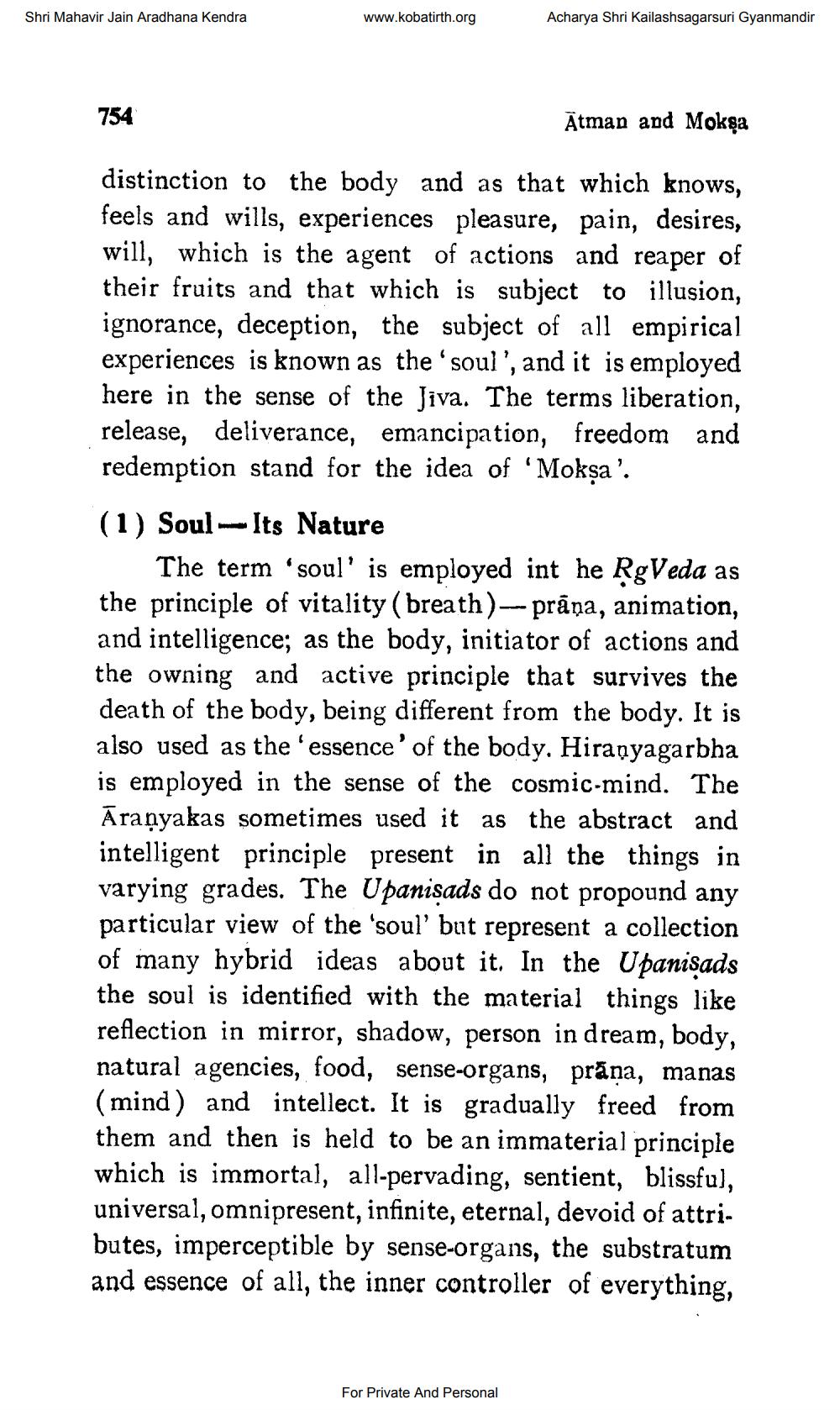________________
Shri Mahavir Jain Aradhana Kendra
www.kobatirth.org
754
Ätman and Mokṣa
distinction to the body and as that which knows, feels and wills, experiences pleasure, pain, desires, will, which is the agent of actions and reaper of their fruits and that which is subject to illusion, ignorance, deception, the subject of all empirical experiences is known as the 'soul', and it is employed here in the sense of the Jiva. The terms liberation, release, deliverance, emancipation, freedom and redemption stand for the idea of 'Mokṣa'.
Acharya Shri Kailashsagarsuri Gyanmandir
(1) Soul-Its Nature
The term 'soul' is employed int he ṚgVeda as the principle of vitality (breath)-prāṇa, animation, and intelligence; as the body, initiator of actions and the owning and active principle that survives the death of the body, being different from the body. It is also used as the 'essence' of the body. Hiranyagarbha is employed in the sense of the cosmic-mind. The Aranyakas sometimes used it as the abstract and intelligent principle present in all the things in varying grades. The Upanisads do not propound any particular view of the 'soul' but represent a collection of many hybrid ideas about it. In the Upanisads the soul is identified with the material things like reflection in mirror, shadow, person in dream, body, natural agencies, food, sense-organs, prāṇa, manas (mind) and intellect. It is gradually freed from them and then is held to be an immaterial principle which is immortal, all-pervading, sentient, blissful, universal, omnipresent, infinite, eternal, devoid of attributes, imperceptible by sense-organs, the substratum and essence of all, the inner controller of everything,
For Private And Personal




